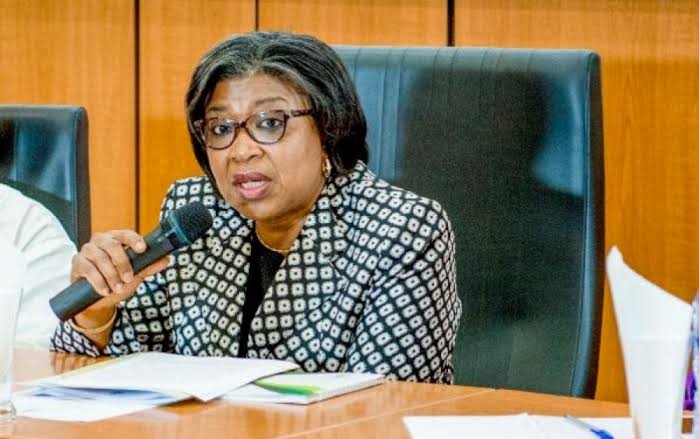The Debt Management Office (DMO) has clarified that China’s loans to Nigeria, which currently stand at $3.59 billion, account for only 9.4 percent of the country’s total foreign debt stock of $37.9 billion.
Ms Patience Oniha, Director-General of the DMO, disclosed this in an interview with the News Agency of Nigeria (NAN) on Saturday in Abuja.
She also clarified that the loans were mostly concessional because no national asset was designated as collateral.
According to NAN, in recent times, both social and mainstream media have been flooded with stories about some African countries, including Nigeria, facing the threat of losing some critical national assets to the Asian country due to high levels of indebtedness.
“As of September 30, Nigeria’s total debt stock was 37.9 billion dollars, which included the external debt stock of the Federal Government, 36 state governments, and the Federal Capital Territory.”
“However, total loans from China amount to $3.59 billion, or 9.47 percent of total external debt.” “The loans did not require any national assets as collateral, and they were mostly concessional,” she explained.
Oniha urged Nigerians to always try to verify sensitive information obtained from official sources before disseminating it.
She explained that before foreign loans were contracted, multiple government institutions took very careful steps to ensure that they were beneficial to the nation.
“Before any foreign loan, including the issuance of Eurobonds, the Federal Executive Council must approve it, followed by the National Assembly.”
“The approval of loan agreements by the Federal Ministry of Justice is an important and extremely critical step.”
“Before the agreements are signed, the Attorney-General of the Federation and the Minister of Justice issue an opinion.”
“Several measures that work in unison have been put in place to ensure that debt data is available and that debt is serviced when due.” “Debt service is explicitly provided for in annual budgets,” she explained.
Oniha explained that the loan agreements outlined a number of steps to take in the event of a dispute.
“The first step is for the parties to resolve it among themselves, and if that fails, they should go to arbitration.”
“In other words, a lender, in this case China, would not simply seize an asset at the first sign of a dispute, including defaults,” she explained.
She indicated that the DMO kept accurate debt data, projected debt service payments, and handled real debt service payments.
She stated that those responsibilities were shared with the Office of the Accountant-General of the Federation (OAGF) and the Central Bank of Nigeria (CBN).
